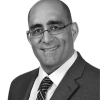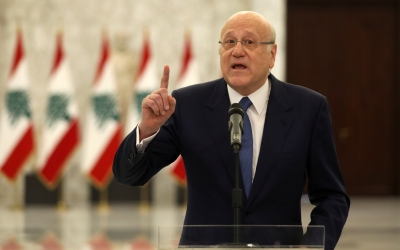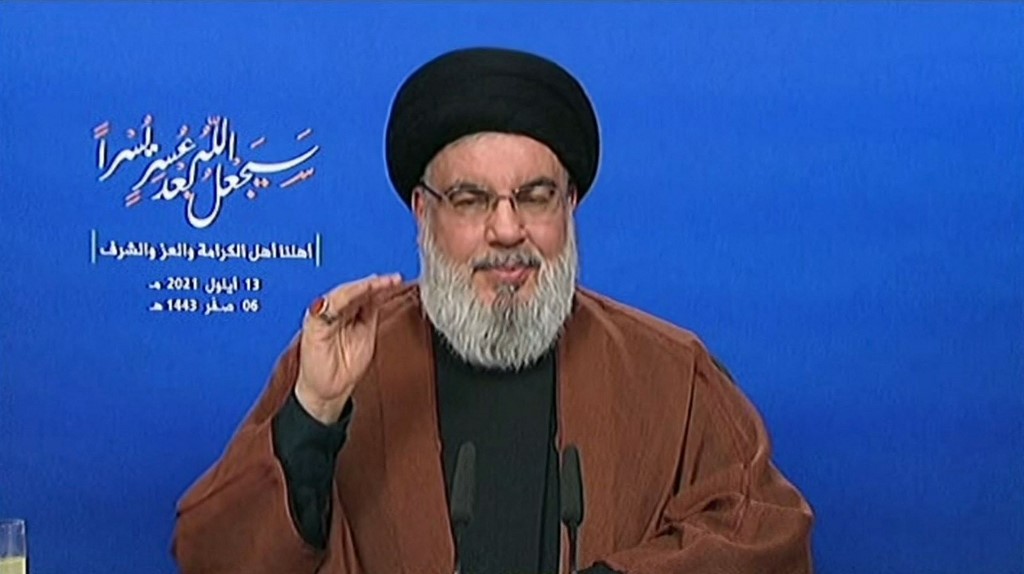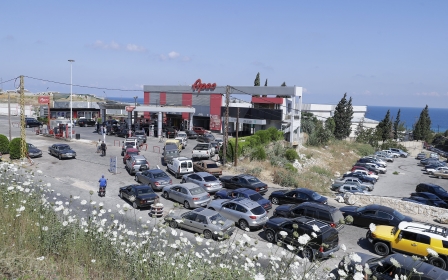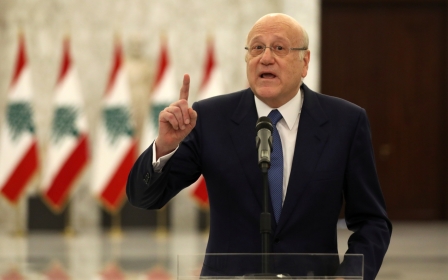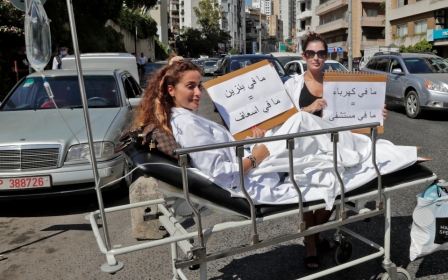Lebanon: New government, different faces, same old problems
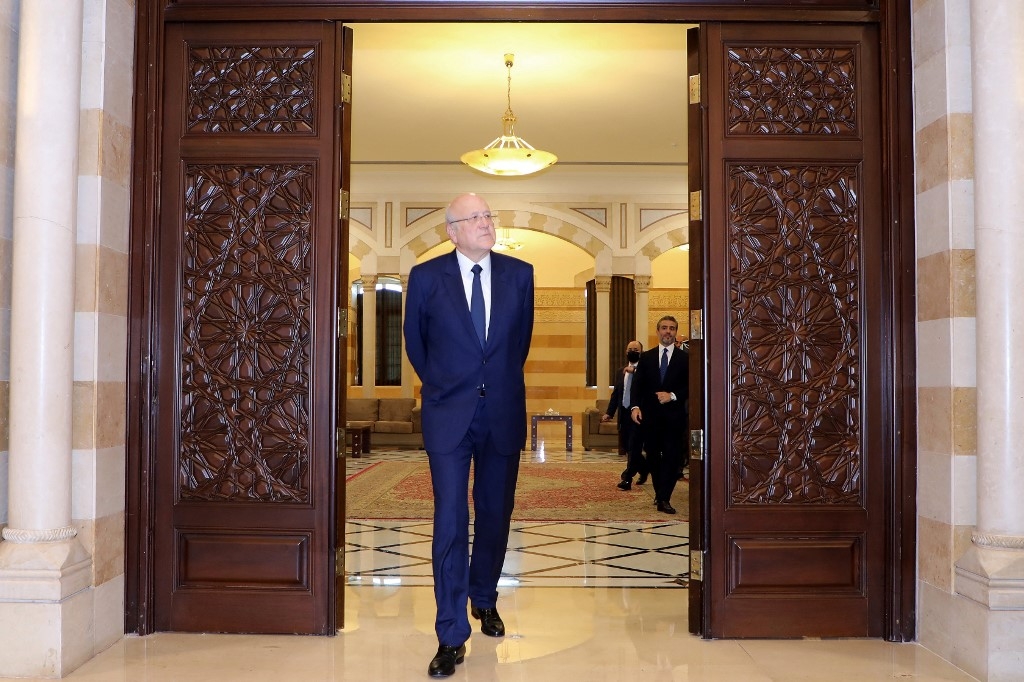
In Lebanon, an exasperated population cheers the formation of a new government after almost a year of tribulations and an unprecedented economic and social crisis.
By now, though, seasoned Lebanese politicians are experts in generating an exciting “shock factor” and the illusion of impending change by introducing a few ministers from outside the usual pool of names. These people generally have impressive professional qualifications, but lack the political clout to spark meaningful reforms or take the necessary bold actions. The 2021 Najib Mikati government is no exception.
Translation: President Aoun and Prime Minister Mikati signed the decree to form the new government in the presence of Parliament Speaker Nabih Berri.
Since the withdrawal of Syrian forces from Lebanon in 2005, various forms of governments - under three very different presidents and five very dissimilar prime ministers - have failed to address any of the many structural political, security, financial or social predicaments facing the country. There must be very good reasons for this.
New MEE newsletter: Jerusalem Dispatch
Sign up to get the latest insights and analysis on Israel-Palestine, alongside Turkey Unpacked and other MEE newsletters
Fierce resistance
Lebanon’s population - in general - has persistently complained about poor governance and the deterioration of public services, but such dissent is usually only expressed through rhetoric and on social media. Most Lebanese ignore the fact that the reforms being demanded of politicians would first require very strong public will - that is, citizens would need to demonstrate stringent discipline, given that the reforms would require their full support and significantly alter lifestyles.
On the other hand, the first few half-hearted attempts at reform were ferociously blocked by a ring of business leaders and politicians. Despite profound ideological and political differences between them, these politico-business leaders were united in seeing most of these reforms as threats to their power.
During the past two years, this “solidarity” manifested itself in fierce resistance against a financial recovery plan proposed by the outgoing government, as the plan would have required the private banks to absorb part of the financial deficit accumulated over the last 30 years. Instead, they arrogantly pushed for selling Lebanon’s public assets, thus exempting themselves from any liability.
And then there are the regional dynamics that have weighed heavily on Lebanon’s economic - and by extension financial - crisis. The lack of a concrete, consistent and perseverant plan by the international community to forestall Iran's strategic and continuous investment in Hezbollah means that this “life insurance” for the Islamic republic is here to stay.
Domestically, this will extend the need for Parliament Speaker Nabih Berri, one of the main symbols of corruption, to remain in good standing. It will also require maintaining the incestuous relationship between the Party of God and state institutions.
The protracted presence of Syrian refugees in Lebanon, as well as the use of Lebanon by the Assad regime to circumvent sanctions, will also continue to impede a healthy economic recovery. Finally, the reluctance of some Gulf Cooperation Council countries to come to Lebanon’s aid cannot be addressed by a government where Hezbollah and its allies continue to have the last word.
Political fragmentation
The same political fragmentation that crippled the outgoing Diab government is stronger than ever. The dynamics - both interpersonal and political - leading up to the announcement on 10 September that a new government had been formed are indicative of the depth of the political divide, mostly because the major political actors believe that this government will be in place well beyond the legal term end of the current legislature in 2022.
In the absence of tenacious public and political will, and in the current charged regional context, it is hard to imagine how this government can attend to the most immediate crises, such as the shortage of basic commodities or the lack of access to depositors’ money in banks.
Considerable cash injections are needed to replenish the banks and the government’s coffers, and this remains a major obstacle that cannot be easily overcome - even with the flashiest names in a hijacked executive branch. The only solution is through gradual structural reforms.
The frequently invoked 'reconstitution of political power' is a prerequisite for any recovery in Lebanon. At best, the current apparatus can be part of a transition
Moreover, the Lebanese public should remain vigilant about being manipulated by a bitter President Michel Aoun (who appears to be seriously considering an unconstitutional extension of his mandate), a very ambitious prime minister, and a number of equally ambitious ministers.
The attributes of inefficacy, lack of vision, corruption and fragmentation are not exclusive to those political groups that are part of the current power scheme. The vast majority of the opposition parties and organisations - including the self-proclaimed revolutionaries - suffer from the same plight but to a lesser degree.
The frequently invoked “reconstitution of political power” is a prerequisite for any recovery in Lebanon. At best, the current apparatus can be part of a transition. The “Macron doctrine”, stipulating that the same groups who led the country as it was going to the wall are the ones who will save it, is a pipe dream.
Nonetheless, such a reconstitution of political power is not - and should not be - only about the personnel involved. It must also involve a reconstitution of the values which underpin political practice in Lebanon, as well as reformed social paradigms that would complement the legal and political changes with social ones.
It will be a long-term process. The first step must be credible and inclusive elections as soon as possible. As Lebanon’s elections are currently managed by the subjugated Ministry of Interior, a cornerstone of the country's recovery must be to establish an independent electoral management body, which could benefit from substantial international assistance and support.
If Prime Minister Najib Mikati is genuine about his intention to save Lebanon, an independent electoral body and a convincing road map leading to timely elections must be his opening gambits.
The views expressed in this article belong to the author and do not necessarily reflect the editorial policy of Middle East Eye.
This article is available in French on Middle East Eye French edition.
Middle East Eye delivers independent and unrivalled coverage and analysis of the Middle East, North Africa and beyond. To learn more about republishing this content and the associated fees, please fill out this form. More about MEE can be found here.


